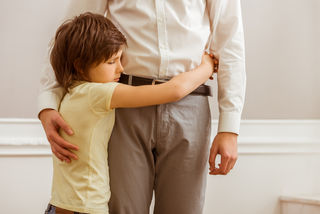Divorce
Should We Wait for Our Kids to Graduate Before We Divorce?
Is there one "best" age to divorce? No. How you handle it is what counts.
Posted November 1, 2016

A reader recently wrote to me because she's concerned that she has waited "too long" to divorce. Her two children are 10 and 13, and she's been unhappy for a decade. One of her friends said that her own parents had waited to split until she was in her twenties, and that she resented them for waiting so long.
We all want to protect our children as much as possible in divorce, and it's easy to believe that there must be some ideal age to part in terms of what kids can handle. The truth, however, is that while our actions can affect our children’s well-being, the timing of a divorce is generally not the most significant factor.
How well our kids fare during a divorce depends on who they are as individuals, and certain other factors that are largely in our control. Here's what you can do to help your kids adjust and thrive during a divorce:
- Minimize conflict with their other parent and strive for cooperative co-parenting.
- Establish stability and a reliable routine.
- Work to recuperate from our own sadness and/or anger.
- Reassure your children that you both love them and will continue to be a family.
This post discusses the most important recent study on childhood adjustment, and how it shows that marriage is not the critical factor for raising happy, healthy children.
Well-meaning friends and family members will give you their opinion about when you should or should not part, but research doesn’t point to any one "better" age for divorce. Anecdotal evidence also varies.
I have heard more than one person say that the early teens can be tough for kids, regardless of their family structure. Divorce may feel like too much when it occurs on top of the identify questions that plague many kids in junior high. But I’ve also spoken to adult kids of divorce who said they were so wrapped up in their own social lives that their parents’ divorce kind of faded into the background.
I was at a networking event in Manhattan a few years ago, talking to a newly divorced woman whose youngest child had just started college. She said half the parents in her child’s freshman class were divorcing—all of them having decided it would be best for the kids to wait until they went off to school. This isn't true, according to the friend of the woman who wrote to me. A woman I just met told me that her own parents divorced when she was in college, and she felt like it undermined everything they’d taught her about love and family, and even religion. Ten years later, her father remarried. She said she felt devastated by this new marriage—she was in her early 30s when it happened—and cried the entire weekend of his second wedding. She kept asking herself how he could divorce. What did this say about her childhood and everything she'd been raised to believe?
We want to pay attention to how our children are doing, and to offer them the chance to talk to a counselor about their feelings. There are also parenting-in-divorce classes available online and in most states, as well as workshops for kids. (I elaborate on how to support kids in divorce in Splitopia. Another book that many people find helpful is M. Gary Neuman's Helping Your Kids Cope with Divorce the Sandcastles Way.)
In my own case, my son was four when his dad moved out. The fact of having parents in two homes folded into his life pretty easily. I told him that his father was going to live on the next street, beside the fire station, so he could visit the fire trucks any time he wanted. The divorce seemed notably not traumatic, perhaps because he was so young. (I also found this downloadable Divorce Toolkit from SesameStreet.org very helpful.)
Today, my son says he doesn’t remember when we all lived in one house—though occasionally he says he would prefer if we did now. This is always sad for me to hear. Divorce is hard for the parents: There’s never a good time to have your child sleep in another home, or to be home with your kids for days on end as the only adult in the house.
Children, however, are very resilient. Your best bet is to focus on a maintaining a decent relationship with their other parent, doing everything you can to avoid an adversarial legal process, and helping your kids tackle the myriad tasks of childhood—just as you would, were you married.
Do you have a question about your divorce? Write to me at wendy@wendyparis.com. And check out my divorce wellness website: Splitopia.com.




